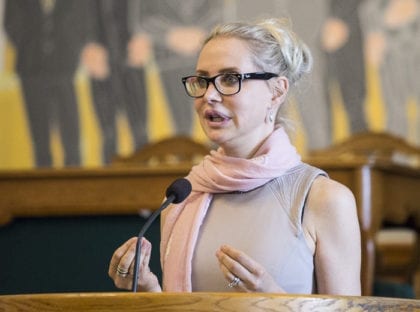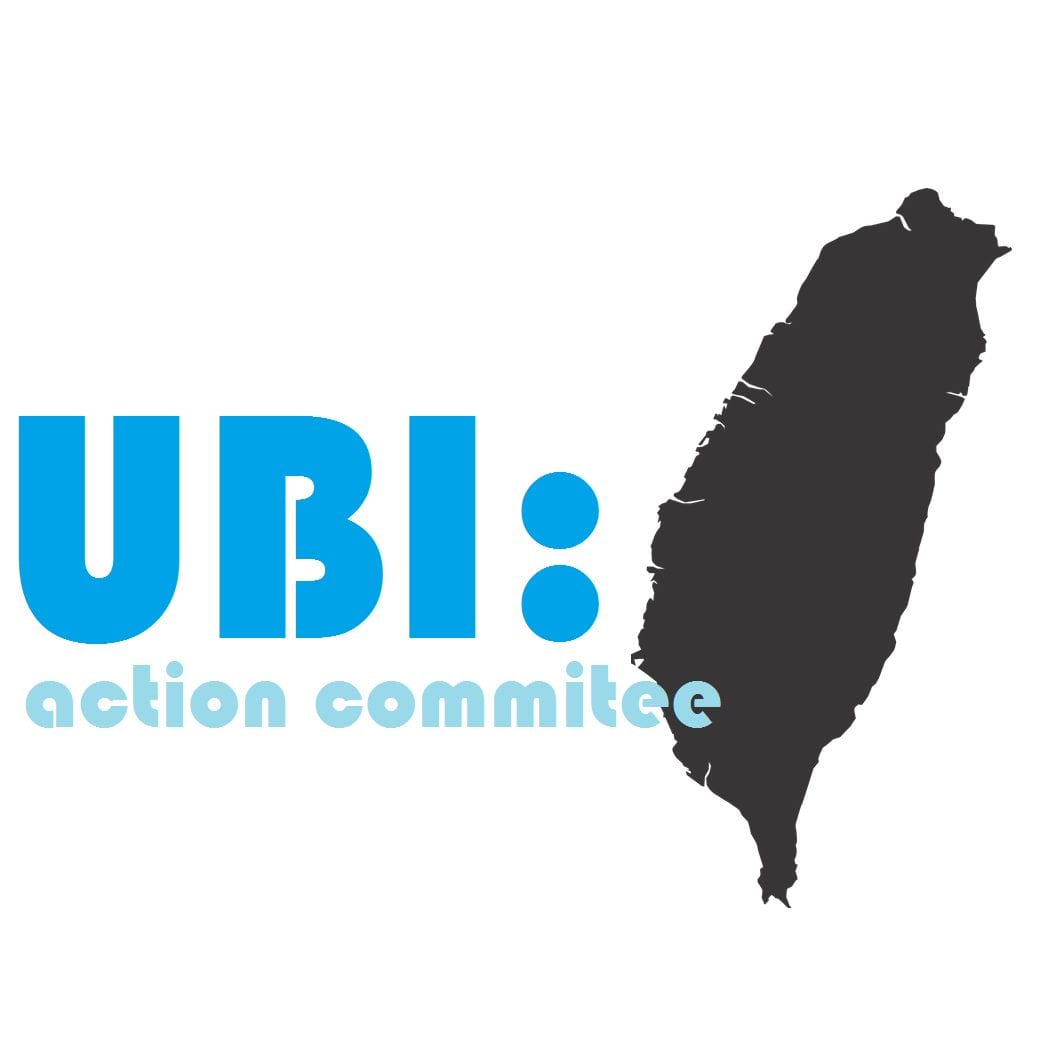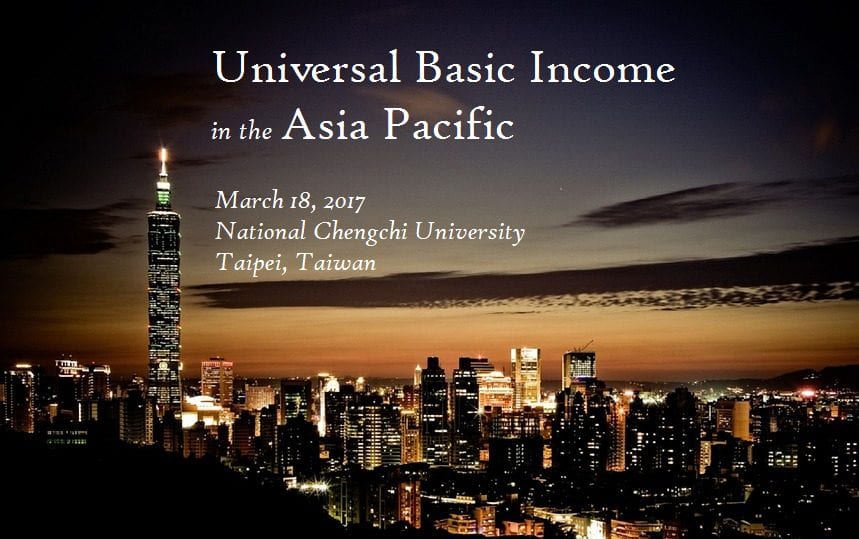
by Andre Coelho | Feb 8, 2017 | News
Mayor Lee Jae-myung. Credit to: Pangyo Techno Valley.
On December 9, 2016, the National Assembly of the Republic of Korea voted to impeach Park Geun-hye over a corruption scandal with her lifelong friend Choi Soon-sil. Due to the impeachment, the next presidential election in Korea is expected to take place early, in April or May 2017 instead of December, 2017. As the details of the scandal have emerged, a previously less well-known presidential candidate has been rising in opinion polls – Lee Jae-myung, the current mayor of Seongnam city. This city is located to the southeast of Seoul and is one of many municipalities of the Gyeonggi province.
In two months, Mayor Lee has emerged as a so-called “dark horse” candidate with a poll approval rating of 18%. He has been ranked as the third most popular of the presidential candidates. The strongest driving force of his rise is attributed to his prompt action in advocating for the impeachment of President Park. He was the first among the presidential candidates to call on the National Assembly to impeach Park Geun-hye. Lee is also famous for his clear stance against powerful vested interests, including the “ in Korea.
Yet, there is another important factor that grabs attention. His major campaign promise is about providing universal basic income. Mayor Lee has successfully implemented the youth dividend policy, which pays an annual dividend of one million Korean won (approximately 850 US dollars) to individuals who are 24 years of age and who have lived in Seongnam city for three years or more. The policy finds its philosophical roots in the idea of universal basic income. The Park Geun-hye administration used several strategies to deter the implementation of the local youth dividend policy, however, Mayor Lee eventually fulfilled his promise.
A survey of 2866 youth distribution recipients shows that 96.3% of youth who received the benefit are satisfied with the policy. Some responses revealing satisfaction and even gratitude include the following: “Upon receiving the youth credit, I have gained confidence, which is more valuable than money”; and “Society looked after me for the first time”.
In his presidential candidacy announcement speech for the 19th Election, Lee Jae-myung said he will expand the universal basic income system to the national level. More specifically, he outlined a detailed plan to provide the ‘life-cycle dividend’ and ‘special dividend’ shortly after his inauguration.
The life-cycle dividend will pay a child dividend to individuals aged between 0 and 12, a teen dividend to those in the 13-18 bracket, a youth dividend to 19-29-year old, and an elderly dividend to individuals who are 65 or older. The special dividend is aimed at specific populations, such as farmers, fishermen and people with disabilities. The amount of the annual dividend is set at one million Korean won per person (874 US$/person), regardless of the kind of dividend. Lee explained that he finds it feasible to allocate 28 trillion won, which accounts for about 7% of the total budget, to the dividend policy by tightening central government spending.

Lee Jae-myung. Credit to: Bloomberg / Getty Images
Moreover, Mayor Lee has also promised that he will secure a total of 15.5 trillion Korean won (13.6 billion US$) by establishing a new ‘land holding tax’. He argues that the revenue from the land holding tax should be used as a source of a land dividend, which provides an annual dividend of 300,000 won (approximately 255 US dollars) to all citizens of the Republic of Korea. Not only can this tax collect a portion of all rents from real estate publically, it can also help realize the idea of universal basic income. Lee firmly believes that land is a common property for all citizens.
In fact, the Republic of Korea is a country that appreciates the ‘publicness’ of land. The Constitution of the Republic of Korea states, in Article 122, that “The State can fulfill necessary restrictions and obligations related to the efficient and balanced use, development, and preservation of land, which is the basis of production and living of all citizens.” In the past, when the government has attempted to implement policies in the spirit of this clause, the country has witnessed numerous attacks from powerful vested interests, the so-called “top 1%”. Most of the time, the government has thus had to withdraw from such policies. However, Lee Jae-myung is seen as a well-equipped candidate with the ability and courage to fight against the powerful elites in Korea and successfully implement this policy.
Mayor Lee’s ideas about basic income
Lee Jae-myung’s basic income policy combines two ideas of basic income theory: 1) the state is responsible for ensuring the de facto freedom of all citizens; and 2) land, natural resources, the environment, and knowledge are common property that must be shared by all members of society. On these grounds, his basic income policy is thought to have positive prospects and much room for growth, particularly in terms of the payout amount. Thus, proponents of universal basic income around the world should pay attention to Lee Jae-myung in Korea.
If Mayor Lee is elected as the next president of the Republic of Korea and successfully fulfills his campaign promise on basic income policy, he would be able to address many problems currently undermining Korean society, such as income and wealth inequalities, unfair competition, and real estate speculation. Then, Korea might be able to follow a path of inclusive growth, which will eventually lead to a fair and equal society.
About the author:
Gangsoo Jun is a professor of economy at the Catholic University of Daegu, South Korea, and is involved in Lee Jae-Myung policymaking team.
More information at:
Language: Korean
Se-young Lee, “전국민에 연간 130만원 … – 이재명 ‘기본소득 마케팅’ [Annual Dividend of 1,300,000 won to All Citizens … – Lee Jae-Myung ‘Basic Income Marketing’]”, The Hankyoreh, 18 January, 2017.
Language: English
Kang Jin-Kyu, “Seongnam mayor declares presidential bid”, Korea JoongAng Daily, 24 January, 2017.
Hyosang Ahn, “SOUTH KOREA: Seongnam City announced to implement ‘Youth Dividend’”, Basic Income News, 7 October, 2015.
Toru Yamamori, “SOUTH KOREA: Mayor of Seongnam City talks on his plan for ‘Youth Dividend’”, Basic Income News, 15 September, 2015.

by Julen Bollain | Feb 7, 2017 | News
(Picture credit: Counterpunch)
In this article Julie Wark and Daniel Raventós write about why the trade unions do not support an unconditional basic income when “properly understood and administered, basic income could have enormously positive consequences”.
Prior to their discussion of the reasons why trade unions do not support an unconditional basic income, they first try to assess both the normative and the practical questions that must be answered when it comes to speaking about the unconditional basic income.
It is also analyzed the right-wing and left-wing unconditional basic income supporters.
Finally, Their discussion is comprised of a point by point response to the six arguments most often raised by unionists when opposing basic income and after discussing them the article is finishes by saying that unionists “also raise basic issues about what kind of society we should and might be able to have because the underlying human rights concerns are always the same and they affect everybody: freedom, justice and dignity”.
Daniel Raventós is a lecturer in Economics at the University of Barcelona and author inter alia of Basic Income: The Material Conditions of Freedom (Pluto Press, 2007). He is on the editorial board of the international political review Sin Permiso.
Julie Wark is an advisory board member of the international political review Sin Permiso. Her last book is The Human Rights Manifesto (Zero Books, 2013).
More articles by Daniel Raventós and Julie Wark, here.
Read the original article:
Daniel Raventós and Julie Wark, “Why don’t Trade Unions support an Unconditional Basic Income (precisely when they should)?”, Counterpunch, January 11th, 2017
by Andre Coelho | Feb 7, 2017 | News

This twenty-seven-minute audio broadcast from BBC World Service is dedicated to discussing basic income, on general terms, and has been played for the first time on the 20th of November, 2016. The discussion is chaired by Ed Butler, who has invited Louise Haagh (University of York and Basic Income Earth Network Co-chair), Michael Faye, Michael Tanner (economist, senior fellow at the Cato Institute) and Ian Gough (visiting professor at the London School of Economics).
Michael Faye starts out by saying that giving cash directly to people is more effective than all the advice and control any “expert” can provide. He communicates that Give Directly is presently launching the most ambitious program ever in the organization, providing a basic income for 25,000 people in East Africa, for 15 years. According to him, there is plenty of positive evidence from these trials, with people investing the money in improving their lives. He concludes that cash transfers are effective, whether given to less or more developed nations (in spite of their differences).
Louise argues that the case for basic income does not rely solely on evidence collected from pilots, but also by verifying the limitations and problems with welfare states. State’s response to growing precariousness, lower wages and rising economic insecurity has been ineffective and ever more punitive. The moral error here, according to Louise, is to qualify people as deserving and not deserving, in order to provide them with social benefits (even just for the bare minimum of subsistence). She refers to basic income as possibly cost neutral (although some critics challenge this notion), using tax structures to transfer money from the relatively wealthy to the relatively poor. Louise points out that most current basic income proposals are not meant to replace the welfare state, with its wide range of public services, but to complement it.

Louise Haagh (credit to: Michael Husen, BIEN Danmark)
Michael Tanner states that in principle the basic income idea is a good one. It is less paternalistic, and creates more incentives within the system. He feels the problems arise in the practical aspects of implementation, citing the (presumed) prohibitively expensive cost for rolling out the policy in the United States. This, he thinks, means that basic income will not be taken up in the US any time soon. However, he recognizes that the present social security system is failing, regarding a basic income strategy as more humane and efficient. He also agrees that delinking income from work is beneficial when it comes to some aspects of social security, and that this may actually eliminate the associated disincentives to work (of the present system). Treating people like adults and not paternalizing them with conditions is, according to him, the way forward. In his final words, Tanner expresses that basic income is one of the most promising ideas for social development.
On the critical side of basic income, Ian Gough does not believe that basic income experiments in poorer countries are helpful for the case of (basic income) implementation in wealthier countries. He dismisses basic income as unaffordable or incapable of providing a decent level of security. Furthermore, he associates basic income with the dismantling of public services such as health and education. Gough also mentions that providing a basic income at the poverty line would mean an average tax level of 50%, which he thinks is not attainable.
Listen to the full conversation:
BBC World Service, “Universal Basic Income – Has its time come?”, BBC World Service – In the Balance, November 20th 2016

by Tyler Prochazka | Feb 7, 2017 | News
The first basic income conference focused on the Asia Pacific region is being prepared for March 18 in Taipei, Taiwan.
National Chengchi University’s College of Social Sciences is the main organizer of the event. Basic Income News features editor Tyler Prochazka is helping to organize the conference with co-chair, James Davis, student of Columbia University, and activist Ping Xu. NCCU’s International Master’s Program in Asia Pacific Studies is also an assistant organizer for the event.
Prominent basic income activist Enno Schmidt has confirmed he will attend. Other scholars from China, India, Australia, Japan, Korea, New Zealand and the United States are preparing presentations.
The conference will be live-streamed on the Basic Income Action Committee’s Facebook page.
 Davis has interviewed Schmidt and Andy Stern, former president of the Service Employees International Union (SEIU). Davis’ recorded interviews will be screened at the conference. Davis is scheduling additional interviews with other scholars and activists for the screening.
Davis has interviewed Schmidt and Andy Stern, former president of the Service Employees International Union (SEIU). Davis’ recorded interviews will be screened at the conference. Davis is scheduling additional interviews with other scholars and activists for the screening.
Prochazka received an Alumni Development Grant from the U.S. Department of State’s Critical Language Scholarship program to assist in funding the conference.
 Xu will is also planning to take part in a presentation with Taiwanese officials, and begin research into a village as a location for a potential future basic income trial.
Xu will is also planning to take part in a presentation with Taiwanese officials, and begin research into a village as a location for a potential future basic income trial.
The RSVP for the event can be found here.
Corrections: This article was updated on March 11, 2017 to clarify information on organization and Ping Xu’s planned activities in Taiwan.

by Michael Lewis | Feb 6, 2017 | Opinion
Michael A. Lewis
Silberman School of Social Work at Hunter College
A recent post, by Nathan Keeble, which appears on the Mises Institute’s website is titled The Dangers of a Universal Basic Income. The main danger seems to be that a basic income (I’m paraphrasing) would provide non-productive people with an income they would not have to work for. “Non-productive” in this context isn’t synonymous with lazy, shiftless, or anything like that.
The non-productive among us could be very busy writing poetry, composing music, playing it, or engaging in other pursuits. What makes one non-productive isn’t a lack of effort or initiative but the lack of a market for their goods or services. That is, if you create or produce something no one wants to buy, you’re non-productive. The problem with a basic income is that it would subsidize such activities. According to the Mises article, this is bad because it would allow people to continue such non-productive pursuits, instead of trying to figure out how to do something there’d be a market for. The result, Keeble writes, is that a society with a basic income would be less productive and experience a lower level of social welfare than a society without one.
I think this is a questionable line of reasoning because it’s based on the shaky assumption that the market is the sole determinant of what’s productive. If someone wants to buy your good or service, you’re productive; if not, you’re not. This is an extremely narrow view.
Consider folks who’re currently employed in factories that make cigarettes, firearms, sugary snacks, or alcoholic beverages. There are huge markets for all of these activities. But if a basic income were enacted, folks working in the above industries reduced their labor supply, and this resulted in a decrease in the production of cigarettes, handguns, Twinkies, and liquors; it’s not clear to me this would amount to a net reduction in social welfare. This is because there’s evidence that all these goods contribute to serious public health problems. And if people spent less time producing cigarettes and more time making art, even if there weren’t markets for their work, this might amount to a net increase in social welfare.
What does or doesn’t contribute to net changes in social welfare is far too complex to be reduced to what people are willing to buy in the marketplace.
About the author: Michael A. Lewis is a social worker and sociologist by training whose areas of interest are public policy and quantitative methods. He’s also a co-founder of USBIG and has written a number of articles, book chapters, and other pieces on the basic income, including the co-edited work The Ethics and Economics of the Basic Income Guarantee. Lewis is on the faculties of the Silberman School of Social Work at Hunter College and the Graduate and University Center of the City University of New York.
Image: Mises Crest – By ConcordeMandalorian – Own work, CC BY-SA 3.0, https://commons.wikimedia.org/w/index.php?curid=31860282







 Davis has interviewed Schmidt and Andy Stern, former president of the Service Employees International Union (SEIU). Davis’ recorded interviews will be screened at the conference. Davis is scheduling additional interviews with other scholars and activists for the screening.
Davis has interviewed Schmidt and Andy Stern, former president of the Service Employees International Union (SEIU). Davis’ recorded interviews will be screened at the conference. Davis is scheduling additional interviews with other scholars and activists for the screening. Xu will is also planning to take part in a
Xu will is also planning to take part in a 
